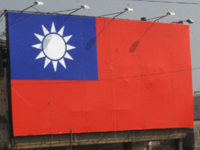{
"authors": [
"Shin-yuan LAI",
"Douglas H. Paal"
],
"type": "event",
"centerAffiliationAll": "dc",
"centers": [
"Carnegie Endowment for International Peace"
],
"collections": [],
"englishNewsletterAll": "asia",
"nonEnglishNewsletterAll": "",
"primaryCenter": "Carnegie Endowment for International Peace",
"programAffiliation": "AP",
"programs": [
"Asia"
],
"projects": [],
"regions": [
"North America",
"United States",
"East Asia",
"China",
"Taiwan"
],
"topics": [
"Security",
"Military",
"Foreign Policy"
]
}
Facing the Challenges of Cross-Strait Relations in 2012
Thu, July 7th, 2011
Washington, D.C.
Over the past year, the Taiwan Strait and cross-Strait relations in general have been fairly quiet. Regular flights have resumed between the mainland and Taiwan, and with the signing of the Economic Cooperation Framework Agreement, steps have been taken to promote better economic integration. As 2012 approaches, both Taiwan and the United States face presidential elections, and China will hold the 18th National Party Congress, where President Hu Jintao will step down from his position as general secretary. In the face of possible leadership and policy changes, many questions exist about the future state of U.S.-Taiwan-China relations.
Carnegie does not take institutional positions on public policy issues; the views represented herein are those of the author(s) and do not necessarily reflect the views of Carnegie, its staff, or its trustees.
